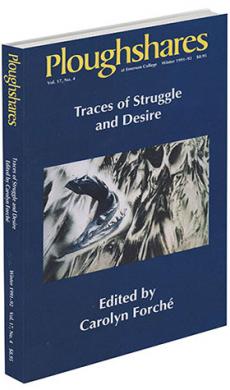rev. of What Work Is by Philip Levine
Those who have read the poems that Philip Levine has produced in his thirty years of writing know that perhaps no other living poet has earned so fully the right to tell us "what work is." The various "grease-jobs," as he calls them, held in his native Detroit in his earlier days have provided him through fifteen books with a wealth of material that he has transmuted into fierce and gritty praise songs of the dignity of human labor. Levine's poems, in this new collection and before, celebrate the ability of men and women not only to endure but also to transcend, through love and its various forms of communion, the grinding harshness, exhaustion, and despair that are still the daily lot of too many in this country.
Levine has long favored the narrative form, delivering the stories of his poems in a passion-charged voice whose declarative force is reminiscent of Yeats's at his most ireful. While Levine can scarcely be said to have mellowed, part of the mastery of the poems in
What Work Is derives from their dazzling modulation of tone, which in "My Grave," for example, ranges from a whisper to a shout and strikes several notes, some of them viciously funny, in between. Nor is the poet reluctant to depart from story line. Levine's lyric asides and expansions in a poem like "Innocence," where he describes tree-covered ground being ravaged for an expressway — "the earth / held and trembled before it gave, and the stumps / howled as they turned their black, prized groins / skyward for the first times in their lives" — are moments in which we feel him lavish love upon the sometimes unbeautiful things of this world. Such moments alone are worth the price of the volume, as are the concluding lines of the title poem, which are Levine at his best and most necessary.
—
Diann Blakely Shoaf

